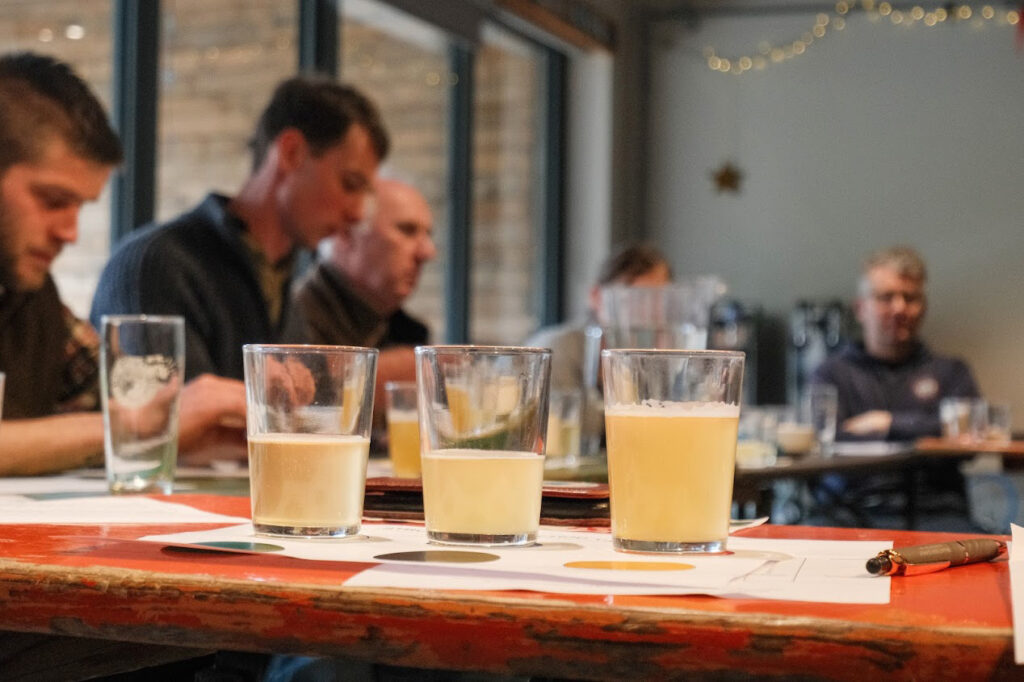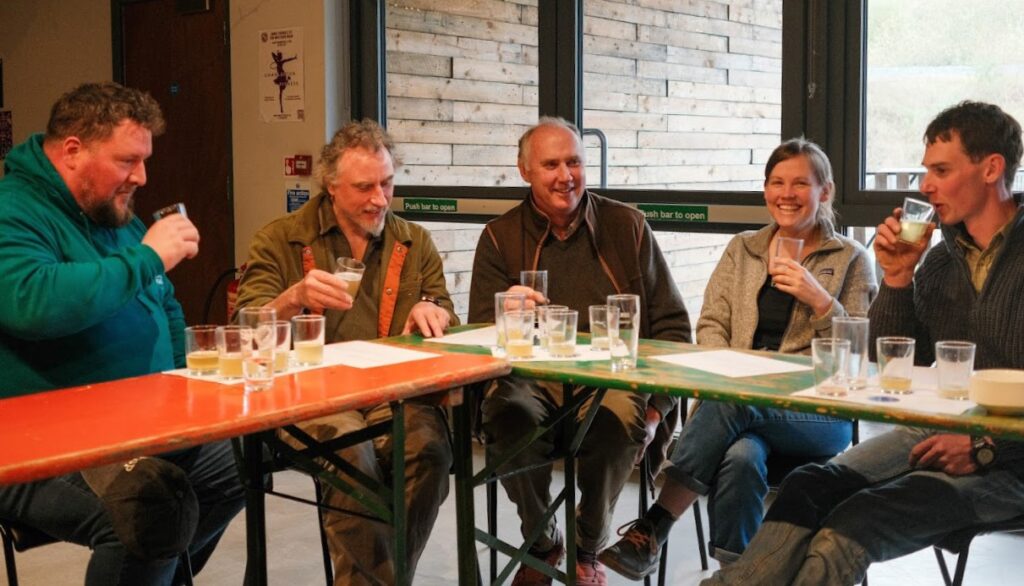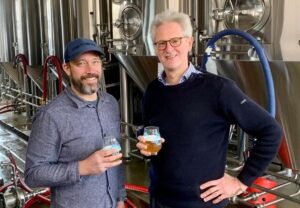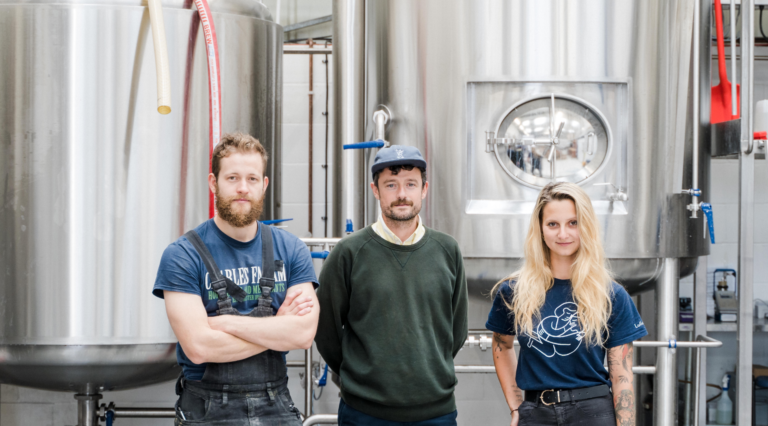There’s an emerging new challenge to maintaining production of both non-organic and organic hops in the UK. The effects of climate change are predicted to severely reduce hop harvests, or could even halt hop growth altogether, as well as increase prevalence of pests and diseases attacking the plants.
Stroud Brewery has been co-ordinating a research project developing new hop varieties resilient to these effects, so protecting beer-making plus providing farmers with potential new markets for their crops.
A special beer-tasting event has marked the end of the 3-year research, bringing together members of the project to sample beers brewed with 5 new potential hop varieties identified in farm trials.
Climate change will put future hop harvests at risk because of increased temperatures and unpredictable weather:
- High temperatures severely inhibit (or even halt) the growth of hop plants (they don’t like sustained high temperatures)
- increase the prevalence of pests and diseases attacking hops as these thrive in warmer temperatures
- reduce crop yields.
For the past three years, the Innovative Farmers’ Hop Trial has been selecting and growing new hop varieties showing potential for increased tolerance to future changes in climate and diseases, and which could also be grown organically.
This would secure supplies for future beer-making, and also open up new business opportunities for UK farmers as there’s increasing international demand for organic hops. Currently, Stroud Brewery can only buy 30% of the organic hops it needs from UK farmers.
In the heyday of hop growing, there were 77,000 acres in the UK. Now there are less than 2,000, with about fifty growers and 25 varieties. The total acreage of organic hop production is 17.6 acres farmed by only 2 organic growers in Britain: the two farmers taking part in this trial.
There has also been a fall in demand for UK hops due to changing consumer tastes towards tropical flavours produced by hops imported from countries like the US.
Greg Pilley, founder & MD of Stroud Brewery in Gloucestershire, said that growing more climate change-resistant organic hops in the UK could supply farmers with a high quality, dependable crop to sell both at home and abroad.
“We’re now moving into the fringes of hop growing really. The underlying issue is climate change – our weather is changing. UK summers are becoming wetter and more humid and less reliable, and it’s making hop growing more challenging. They’re fussy plants to grow at the best of times.”
Pests and diseases that attack hops are becoming resistant to current chemical treatments, meaning the new hop varieties would help non-organic farmers, too.
The findings show that two of the traditional hop varieties, Fuggles and Goldings, grown non-organically in the UK, are under threat from climate change and the rapidly increasing cost of artificial fertiliser.
Growing trials on two farms in Worcestershire & East Sussex have identified 5 varieties showing promise in coping with higher temperatures and with increased pest and disease resistance. John Walker, from Woodlands Farm in Worcestershire, said he is growing hops that had previously been ditched by farmers due to being susceptible to wilt, but can see they are thriving on his organic farm.

Stroud Brewery has brewed new beers using the hops showing the most potential, in order to test their suitability for commercial beer-making. All partners of the research met at the Brewery to sample these beers and judge the results.
The panel particularly liked the beers brewed using varieties Endeavor, CF302 and Harlequin, the latter is already conventionally grown but is not normally produced in an organic setting. The panel commented that these not only showed higher tolerance to disease but produced exciting flavours, with notes such as “pineapple”, “strawberry laces”, “blackcurrant”, “spice” and “lemon”.
Oaty Ale is brewed using Harlequin hops, grown on the Sussex farm, and malt produced in the Cotswolds. It shows what it’s possible to do using UK ingredients, which others have to do globally.
The beers are available to customers in the Brewery’s taproom, who are being asked for feedback to help judge which hops will produce commercially viable brews.
Photography: Sam Oliver/Stroud Brewery.









